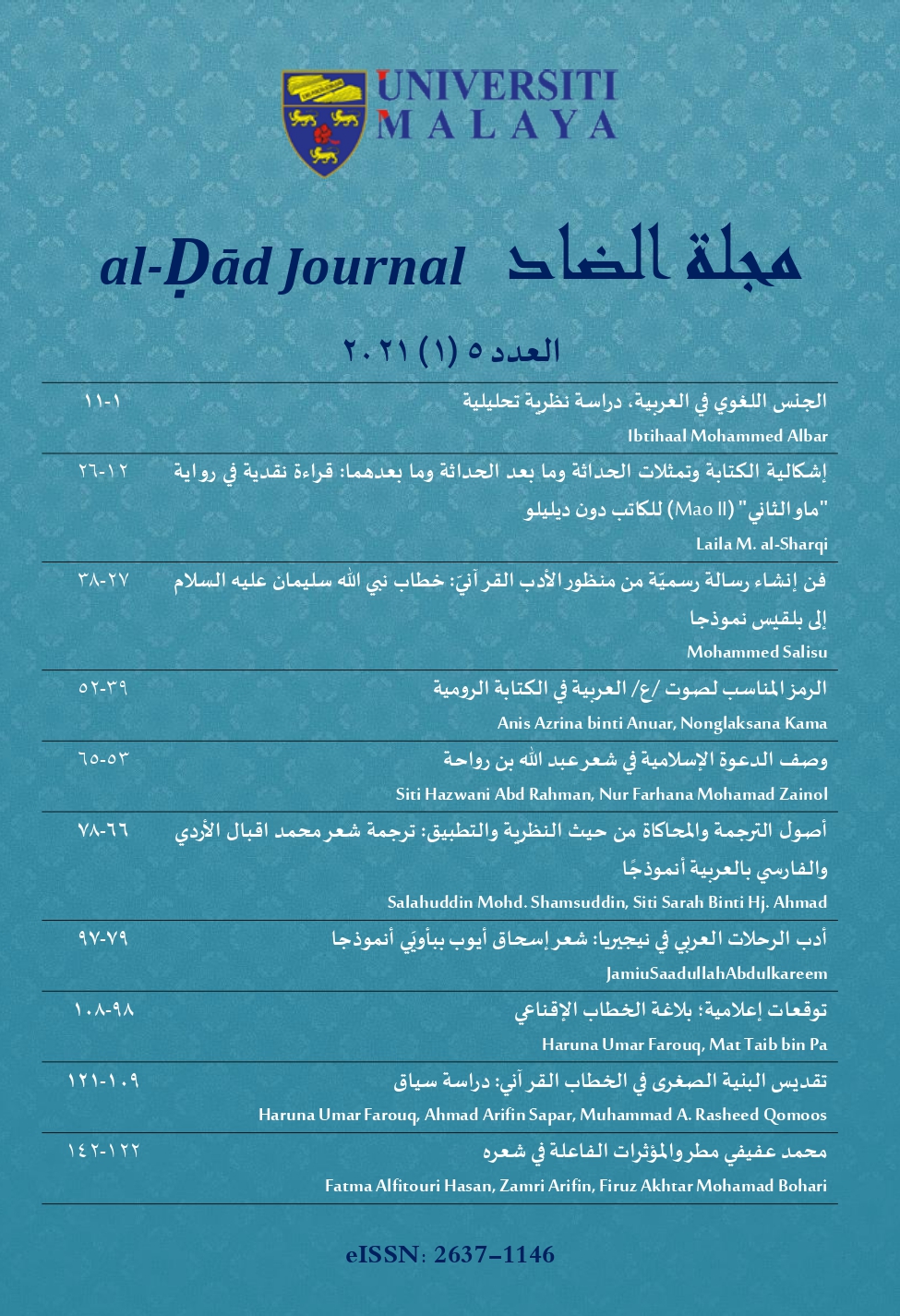Muhammad ‘Afifi Maṭar and the effective influences in his poetry
Arabic Literature
Keywords:
Muhammad Afifi Maṭar, his life, his poetry, the effects of his poetryAbstract
This study aims to introduce the poet Muhammad Afifi Maṭar through his life and upbringing, because of the importance of forming the personality of the writer and imprinting his qualities. The writer is the son of his environment, affected by it and affects it, and we cannot understand any literature unless we put it in its societal and historical context. It was necessary for the rural environment in which Rain grew up with its simplicity and diversity, and Egypt and the successive major events that it witnessed to cast a shadow on the poet, polish his poetry and sharpen his ideas. The study also aims to identify the most important effective influences in his poetry: poverty, his position on authority, alienation and imprisonment. These influences reflected the nature of political, social, intellectual and cultural life during the historical period in which the poet Muhammad Afifi Maṭar lived. The study relied on more than one method to achieve the desired results. It adopted the historical method in introducing the poet, his life and the most important events he lived through. And the descriptive analytical method to study the effective influences in his poetry by describing and analysing them through models of his poetry. The study reached several results, including: Poet Muhammad Afifi Maṭar was affected by the Egyptian village life, including its customs, traditions and beliefs. He portrayed with great depth and sincerity the suffering of the people of his village from poverty and need. His position on the authority embodied the image of the Arab intellectual in the face of it.




